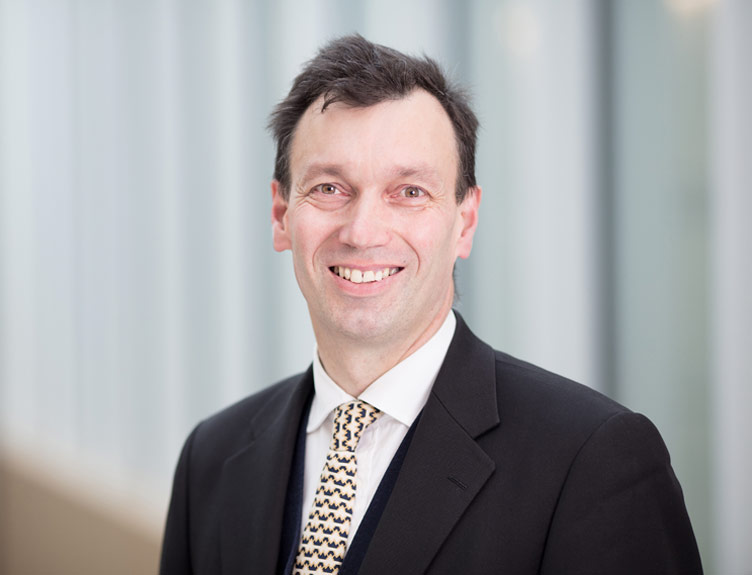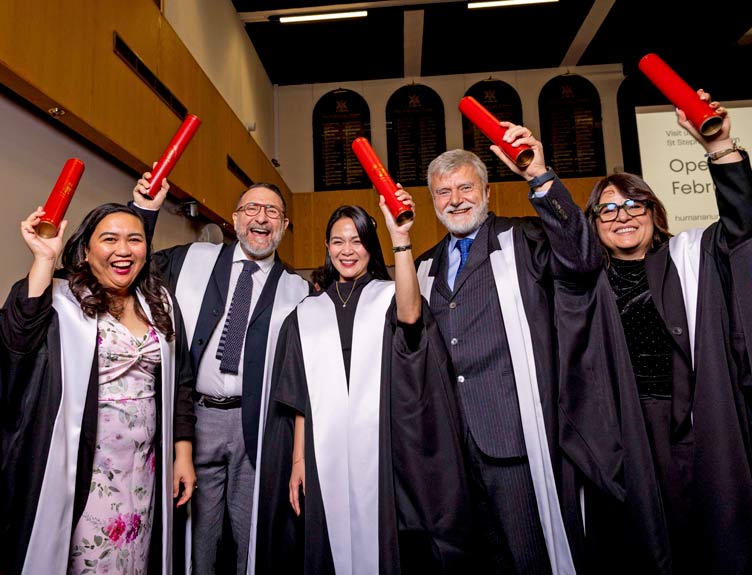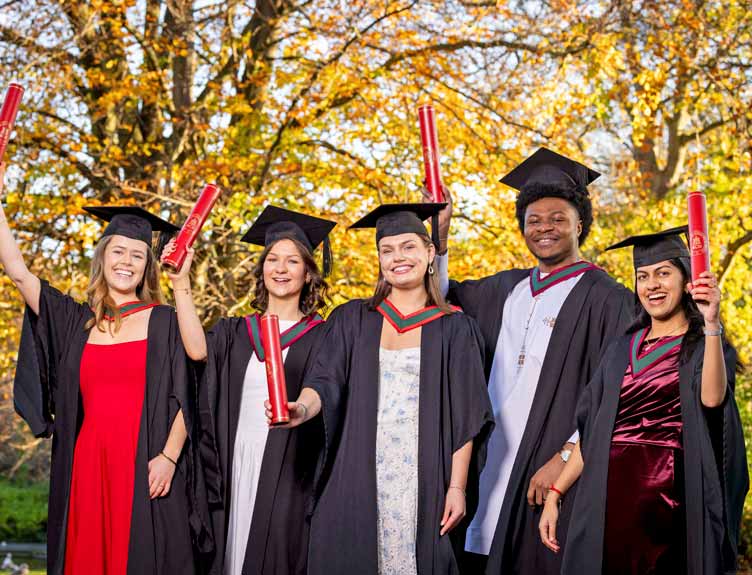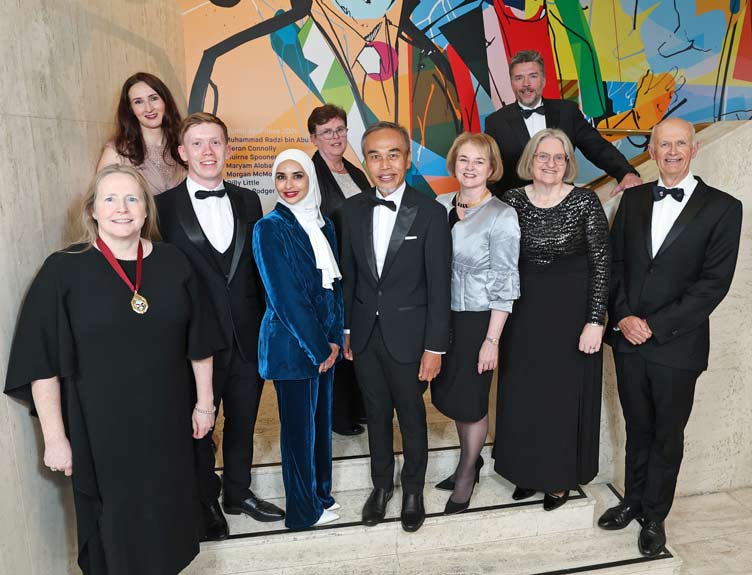Getting to know ... Professor Sam McConkey

Over the past year, Professor Sam McConkey has become a well-known face to many in Irish life. His work advising the public on COVID-19 has seen him feature in multiple newspapers, magazines and radio and TV shows, where he offers his expert analysis on the unfolding pandemic.
Where were you born and raised?
I was born in Enniskillen Hospital in Northern Ireland, although my parents lived in Monaghan in the Republic of Ireland. My mother, from Co. Derry, was a primary school teacher in Rosslea in Fermanagh, and she thought that the healthcare services were better north of the border at that time.
I was raised on a mixed farm in Latroe, in Killeevan. On the farm were piglets and sows, sheep with lambs, hens and chicks, cows, bullocks, calves and horses. I enjoyed a lot of my youth cutting silage, spreading slurry and milking cows, or making practical things for the farm, like metal gates, walls, roofs, and woodwork.
Tell us more about your current role.
Currently, I'm Deputy Dean at RCSI, responsible for international curriculum development, and Head of the Department of International Health and Tropical Medicine. Since 2005, I have been a Consultant Physician at Beaumont Hospital in Dublin and at Our Lady of Lourdes Hospital in Drogheda.
I set up sexual health services for the north east, and run general medical on-take, a busy inpatient service and specialist OPD clinics that are accessible for people with HIV, tuberculosis, bone and joint infections, hepatitis and particularly travellers with unusual symptoms. These latter have become few in 2020, and those we do see have mostly turned out to have SARS-CoV-2, so I look forward to more clinical tropical medicine in the future after COVID-19, when the planet opens up to international travel again.
What other profession would you like to attempt and why?
Up to 17 years of age, I thought that I’d be a farmer of the stony grey hills in Monaghan, like my ancestors had done for hundreds of years. I considered agricultural and rural development work in the developing world, and I have been able to work in West Africa for about seven years as a doctor, researcher and hospital leader. In Sierra Leone, I ran a mission hospital during an unpredictable, vicious civil war, removing many bullets and cleaning out machete wounds of traumatic amputations.
Part of me would like the ruthless focus of the bond-trading market for a while, and part of me is happy in the mental worlds of pure and applied mathematics. Happily, in St Louis, Missouri, I was able to do a two-year masters degree in mathematics, including mathematical modelling of infections, and computer programming to perform simulations of spatial statistics. This has been rather useful during the pandemic.
My schoolteachers and career guidance staff at secondary level recommended that I become an actuary, which I had to look up to find out what it was. However, I’m very happy that I did not follow actuarial training as the humanising effects, the complex communications, the rich models for understanding the world, and the diversity of people that I’ve experienced though medicine have changed me in ways that I value a lot.
I would like to write fiction, or play more music, though I’m not sure that I’ve the talents to do either professionally!
When and where are you happiest?
In my home kitchen-dining area hosting family and close friends, with diverse good food from around the world, paired with matching drinks – listening to the talk and the stories and fun of those that I care about.
Or out racing around Dublin bay on a sailing boat – hopefully at the head of the fleet, focused on sail trim, racing tactics and strategy, rather than on the helm.
What is your favourite poem?
Probably the metrical version of Psalm 121 from the Bible: "I to the hill will lift mine eyes, from whence doth come mine aid" rolls around in my head frequently in 2020, like a prayer.
What is your greatest achievement outside of your profession?
21 years of co-parenting.
Dream dinner party – who and why?
- Imelda May – a musician and songwriter for her music and laugh.
- Roddy Doyle – a writer of fiction for his stories.
- Maureen O’Sullivan – a research pathologist for her gentle wit and charm.
- Noel McCarthy – a public health researcher for his novelty and creative thinking.
- Mary, with whom I’ve shared most of my life.
What are you currently watching on Netflix?
Recently, The Queen’s Gambit. Dix Pour Cent (Call My Agent!) had me addicted, and The Crown series 4, for a sensitive depiction of bulimia.
Favourite film?
Roberto Benigni’s Life is Beautiful.
Who is your hero of fiction?
Mr Banks, the evolving father in Mary Poppins.
Which book has had the biggest impact on your life?
Soren Kierkgaard’s Fear and Trembling or Existentialism by John Macquarrie.
What are you currently reading?
Jack by Marylene Robinson.
Who was your most listened-to artist on Spotify this year?
Mariza, a Portuguese traditional fado singer.
What was the first album you ever bought?
T Bone Burnett – Proof through the Night.
Which song always makes you smile?
'Crocodile Rock' by Elton John.
Who was the last artist you saw live?
Kevin Martin, in Clontarf Yacht Club.
Who are your musical heroes, and why?
Chuck Berry, who I’ve seen on Blueberry Hill, transcends space and time and human diversity. The reharmonised a cappella microtones of Jacob Collier’s version of 'Moon River' draws out in my mind what music can be.
A huge thank you to Professor Sam McConkey for taking time from his packed schedule to speak with us. We hope you enjoyed getting a different insight into a figure you may be very familiar with from the past year!



